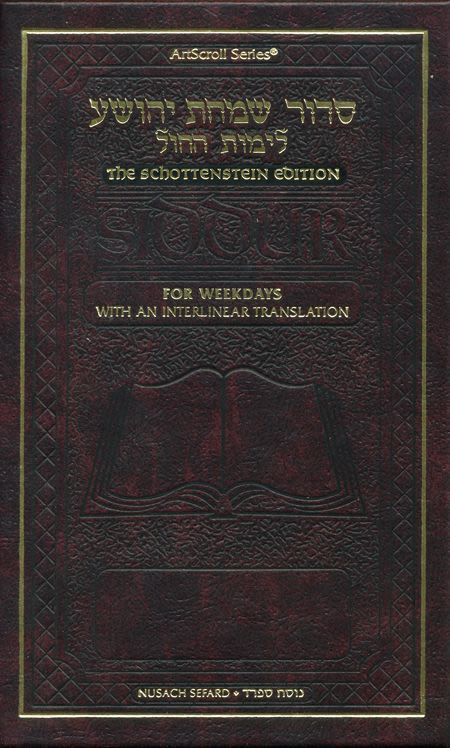
Hashem Listens
Hashem hears the voice of everyone who calls out to Him. This is an intrinsic part of creation, for Hashem created the world to reveal his compassion.

Part 1
The Torah tells about a poor person that needs an urgent loan. The lender – rightfully so – asks the poor person for collateral. The poor person has nothing to offer but the shirt on his back. The lender asks, "Do you sleep in that shirt?" The poor person says no. The lender says, "Fine – give me your night garment as collateral" (See Shemot, chapter. 22).
The Torah allows the lender to take the night garment (a men's version of a nightgown) as collateral, but then commands the lender to return the nightgown to the poor person every day at sundown, so that the poor person will have something to sleep in. The poor person in turn must return the collateral to the lender the next morning at dawn with no excuses and no delay.
The Torah tells the lender, "Fine; you want to demand collateral from this poor guy? No problem; you are allowed to take his one and only possession – his night clothing." At this point, Hashem adds a stiff warning: "Return it [the night garment] to him [the poor person] every evening, because if you don't, and the poor person cries out to me in desperation, I will listen, for I am compassionate" (Shemot 22:26).
The Torah is revealing to us one of the most powerful foundations in emuna – the pure and complete faith in Hashem. Whenever a desperate person cries out to Hashem from the bottom of his or her broken heart, Hashem listens. Always!
This is not a messenger speaking, not an angel or a prophet. Hashem himself promises: "I will listen, for I am compassionate."
The great 12th century Kabbalist and Torah commentator, Nachmanides, explains that Hashem answers the cry of every single person who sincerely calls out to Him, even if that person isn't an upright person, for Hashem answers our prayers as a gift. He further elaborates that a person might say, "OK, I'll return the night garment to a poor tzaddik – a poor righteous person – but I won't bother with a poor scoundrel. Let him suffer! Hashem disagrees, according to Nachmanides' commentary on the Torah, for Hashem says, "Even if the suffering person is not righteous, I will still listen to his or her cry to me! I will listen, for I am compassionate…"
Hashem listens to the prayers of every single person, as a gift. In truth, a person deserves nothing. Let's take a closer look at the Nachmanides' explanation: Imagine a poor person who wants a loan but knows that he can't return the loan. In reality, he's looking for a handout. He says that he wants to buy food so that he'll be able to work. A few days later, the lender inquires if the poor person did a day's work and has earned the money to repay the loan. The poor person answers in the negative to both counts. The lender says to the poor person, "Hey mister, you are a rip-off artist and not a tzaddik. I'm sick of these daily games of ping-pong with the nightgown. If you want your nightgown back, pay me back my money!" Even if that person isn't righteous, if he needs help and he cries out to Hashem, Hashem still listens!
Rav Shalom Arush explains that there's an intrinsic reason why the Torah mentions this important principle – I will listen, for I am compassionate – in this particular place. The Torah speaks about Hashem's compassion when mentioning the poor person to teach us a remarkable lesson: Do you know why the person is poor in the first place? Because he or she lacks emuna. They're poor because they don't call out to Hashem. The Torah testifies that Hashem is compassionate. If the needy person would have called out Hashem's name, Hashem would have answered a long time ago and he or she wouldn't have fallen into such a destitute state.
Hashem hears the voice of everyone who calls out to Him. This is an intrinsic part of creation, for Hashem created the world to reveal his compassion.
If Hashem promises to answer all our prayers, then why don't we call out to Him? Why don't we pray? Why don't we speak to Hashem every single available moment?
Hashem gives us a wallet full of spiritual credit cards – Visa, Diners, Cart Blanche – "Just call My name and receive whatever you need," Hashem is telling us. Yet, we all walk around like spiritual beggars, when, in essence, we have carte blanche, an unlimited account to use and to draw from. Why don't we use it? Why don't we call out to Hashem?
The answer is simple. The Evil Inclination, the Yetzer Hora, will do anything in the world to keep a person from attaining emuna and appealing to Hashem. Do whatever you want, just so long as you don't believe in Hashem. Since prayer, especially personal prayer, is the basis of emuna, the Yetzer does everything in his power to prevent a person from speaking to Hashem. He has 270 different arguments for every person, tailor made to clamp that person's heart and mouth air tight: For example –
* I'm full of bad deeds – Hashem won't listen to me (Hashem listens to everyone that calls Him)
* If Hashem really cared about me, He wouldn't have let me be poor in the first place (wrong – that's the only way Hashem could teach you emuna and correct your soul, for the rich normally don't cry out to Hashem)
* Hashem has bigger and better things to do; does He really care about me? (The Baal Shem Tov explains that Hashem's phenomenal Divine providence extends from the greatest creation to the minutest creation. He therefore most surely listens to the son or daughter with the neshoma, a tiny part of Godliness itself).
* Look at all the suffering in the world; does Hashem really exist? (The Yetzer is really begging the question here, because the reason of the suffering is the fact that people transgress Hashem's will).
* I feel ridiculous talking to the wall! (You feel that way because you lack emuna; do you feel ridiculous about destroying your body and your brain with substances or wasting your money with all sorts of predators that can't help you? The list goes on and on…)
The Yetzer wants to close the very Gate to Salvation that Hashem promises us.
If you want to talk to Hashem but can't remember how to answer the Yetzer and to get him off your back, simply recite this passage from Torah over and over again:
I will listen, for I am compassionate – I will listen, for I am compassionate – I will listen, for I am compassionate!
Even if the Yetzer has two hands around my throat, God forbid, and I can barely breathe – I cry out to Hashem, "Compassionate Father, have mercy on me! Please Abba, I know I don't deserve a thing, but You created the universe and this world within it to show us your merciful lovingkindness. Abba – my Father, I can't continue on like this; I'm powerless to solve my problem. I've tried everything – all the doors are locked. Merciful beloved Father, the great Nachmanides teaches that You listen to the cries of the transgressors. Please, I have no one to turn to but to you – please Abba, listen to my prayers. Heed my voice. I beg you – give me a free gift… don't close the gates of salvation!"
When a person strengthens himself with the knowledge that Hashem is compassionate, he merits all the salvations in the world. The important thing is to remember and pray to Hashem with the pleading voice of a poor person, and not with the haughty attitude that Hashem owes us anything. The pure, simple, and sincere plea for mercy opens the gates of salvation!
To be continued…










3/26/2021
Wow this is so inspiring!! thanks you so much for publishing this amazing article!!!!